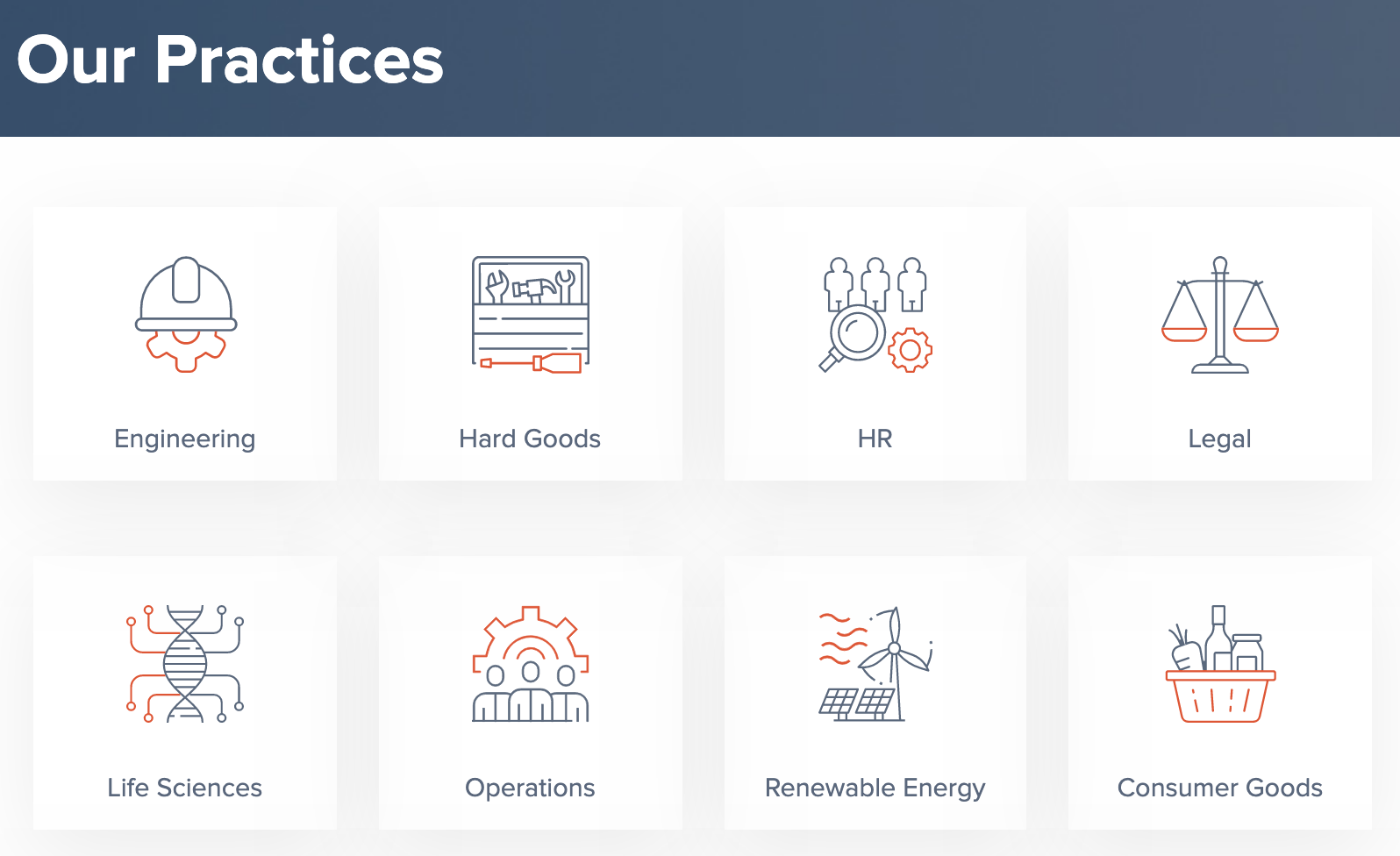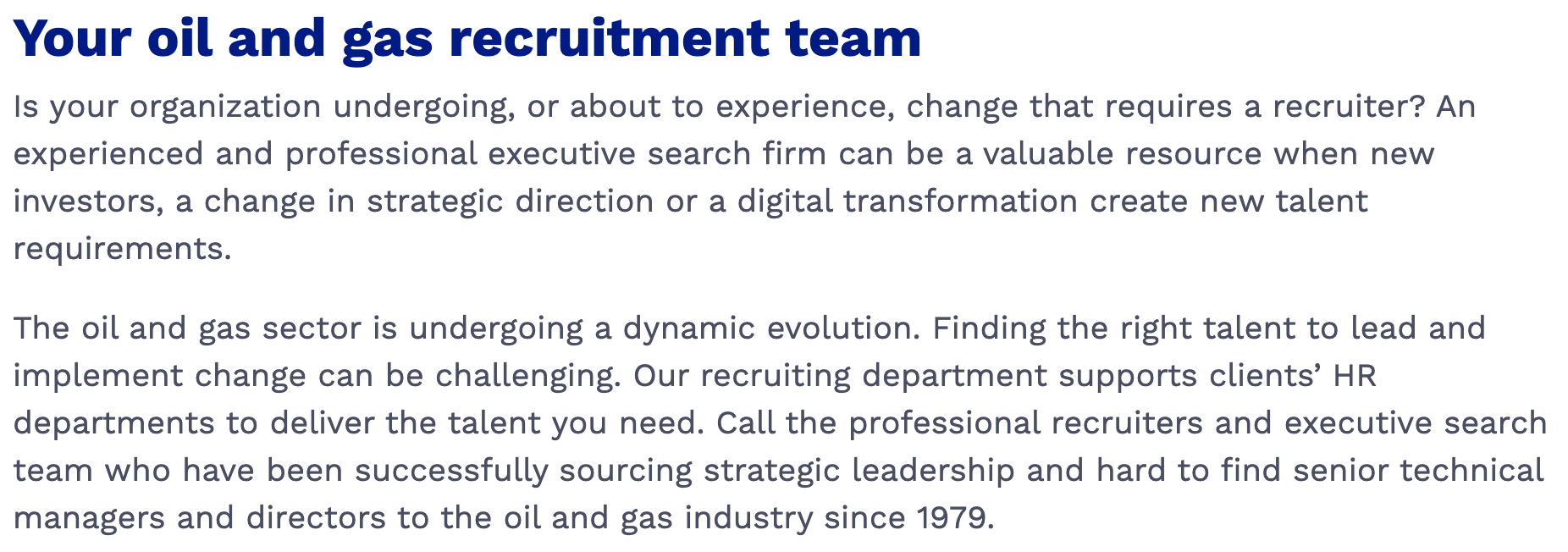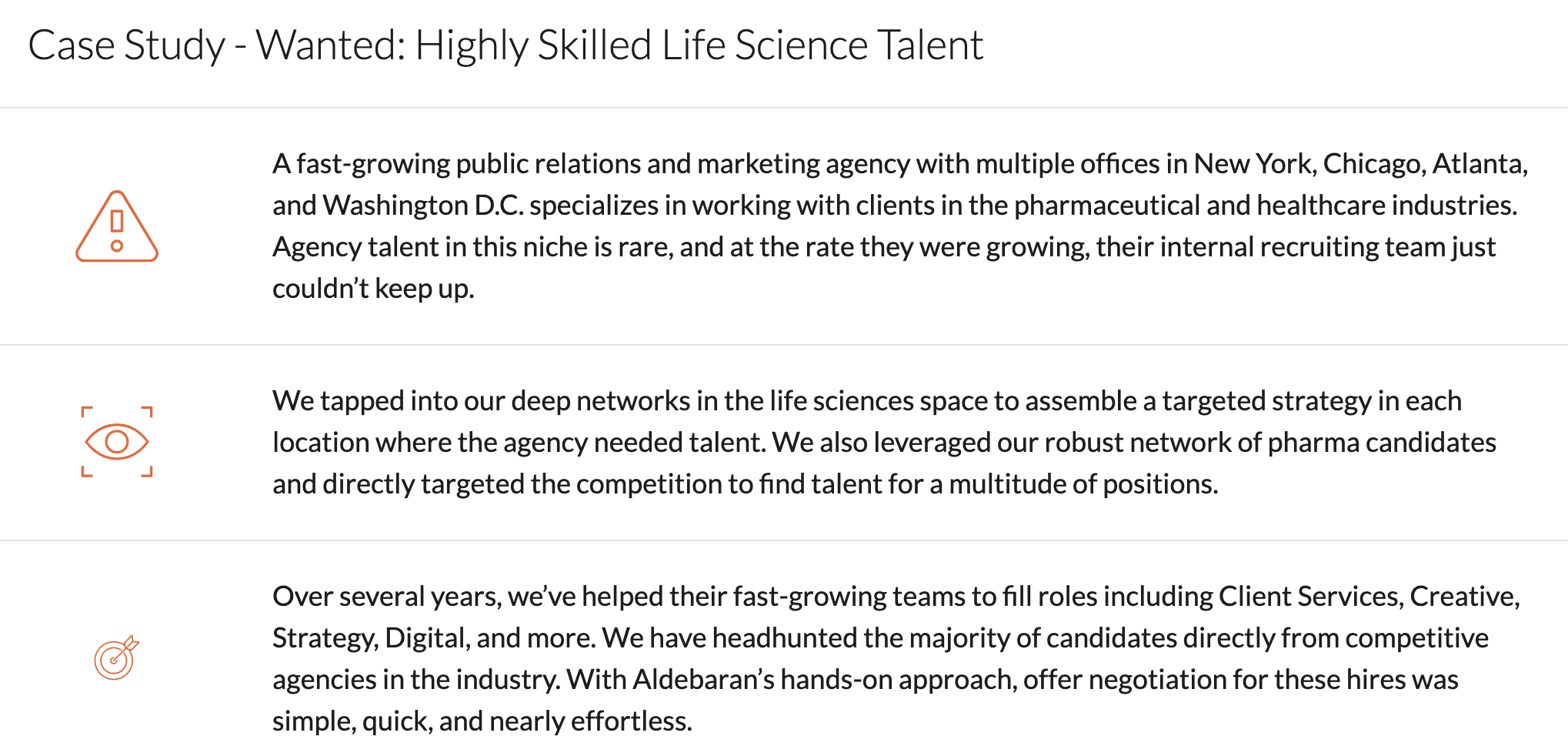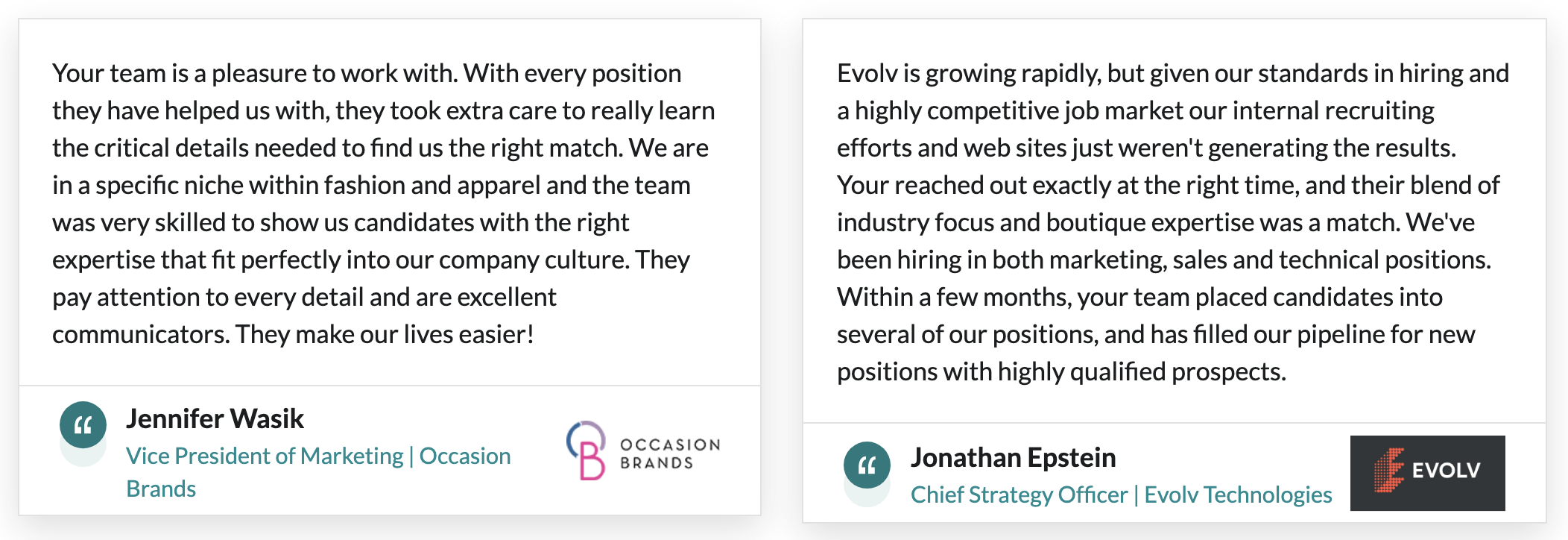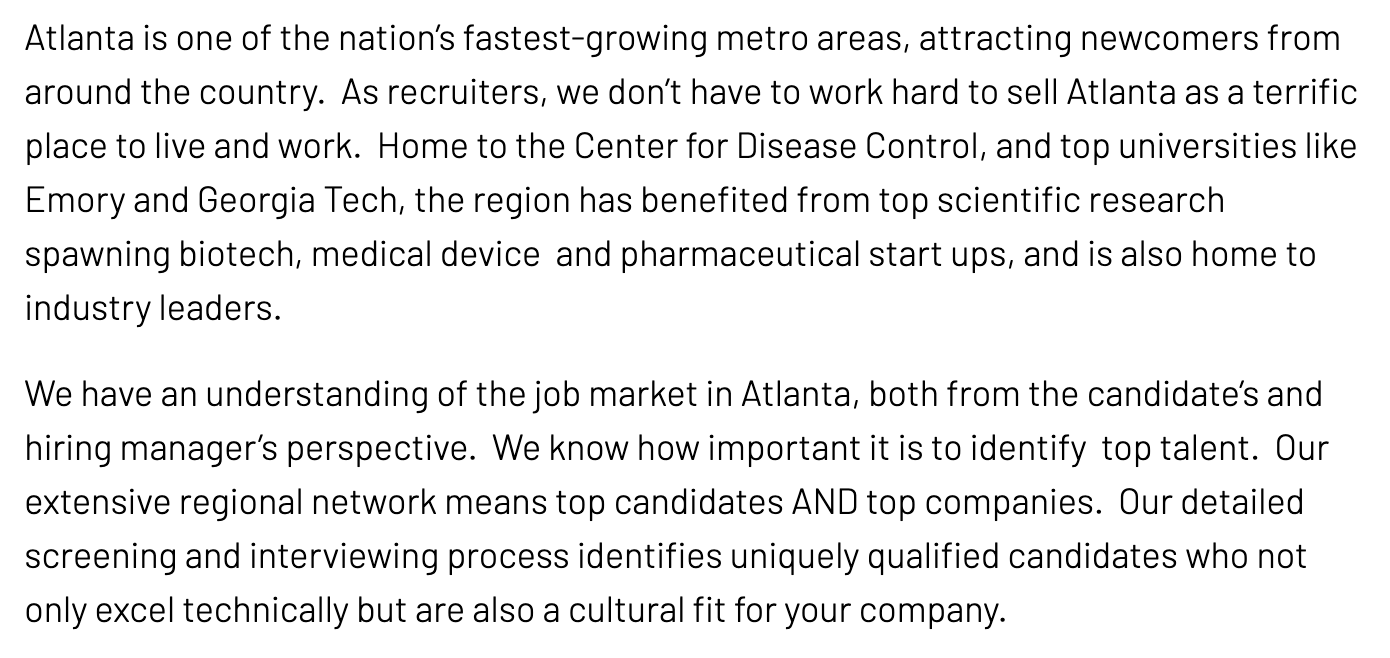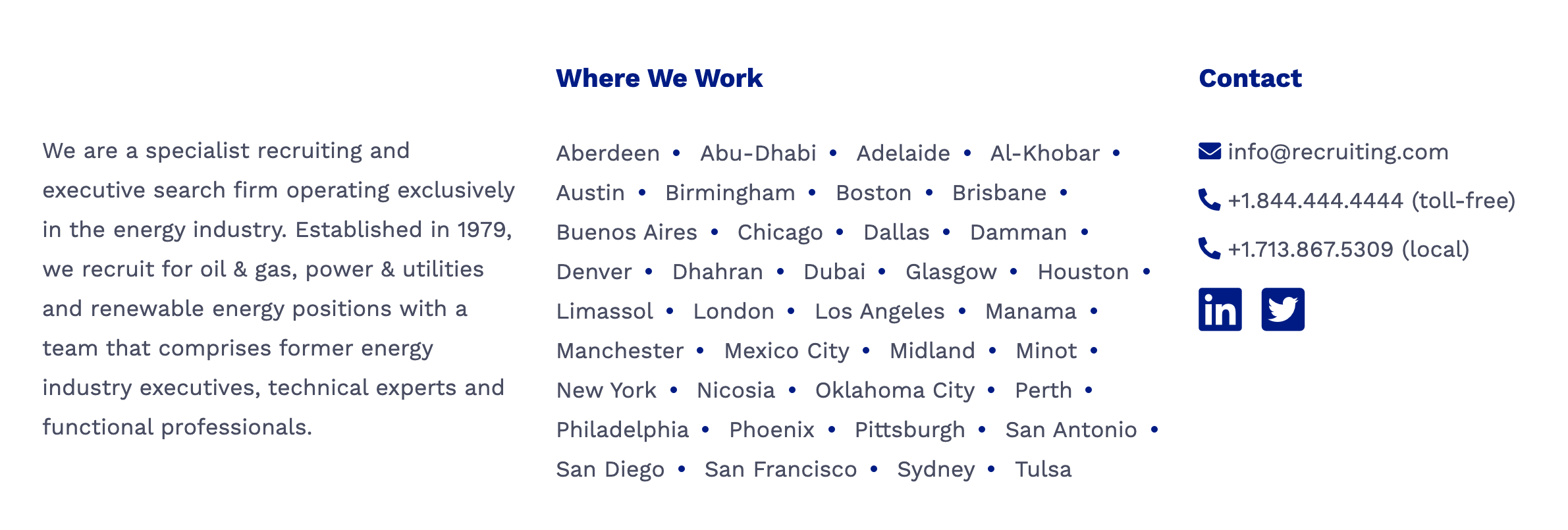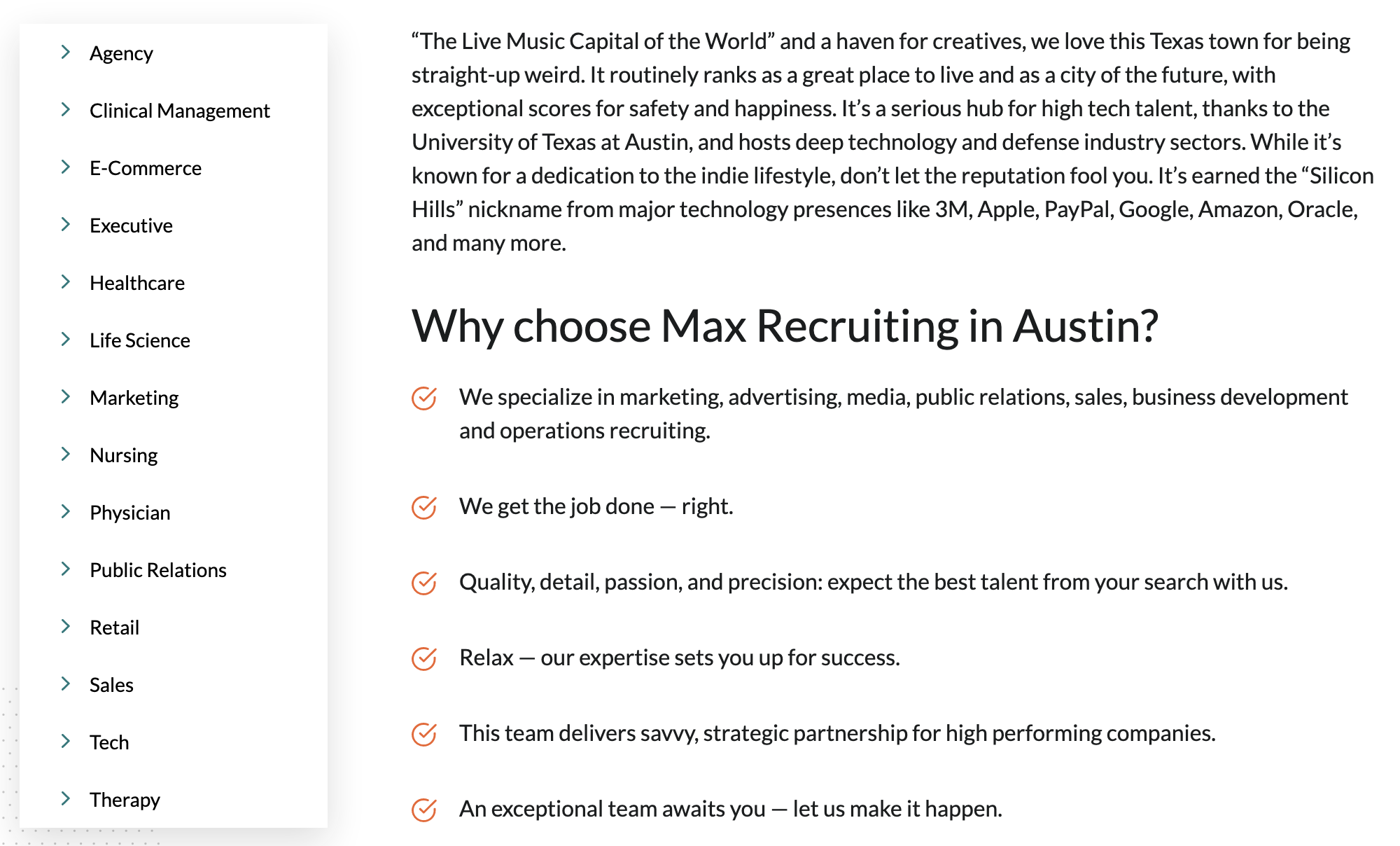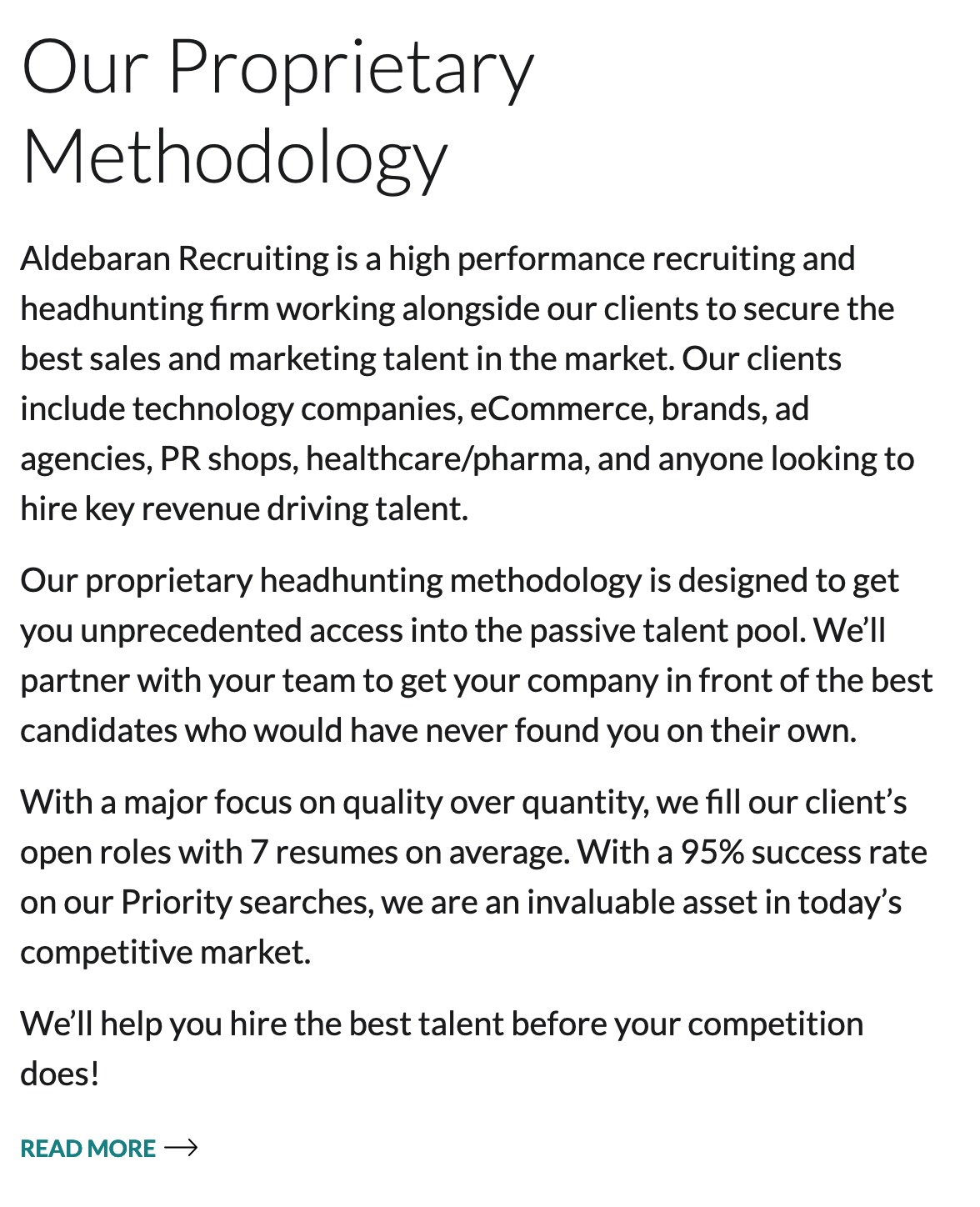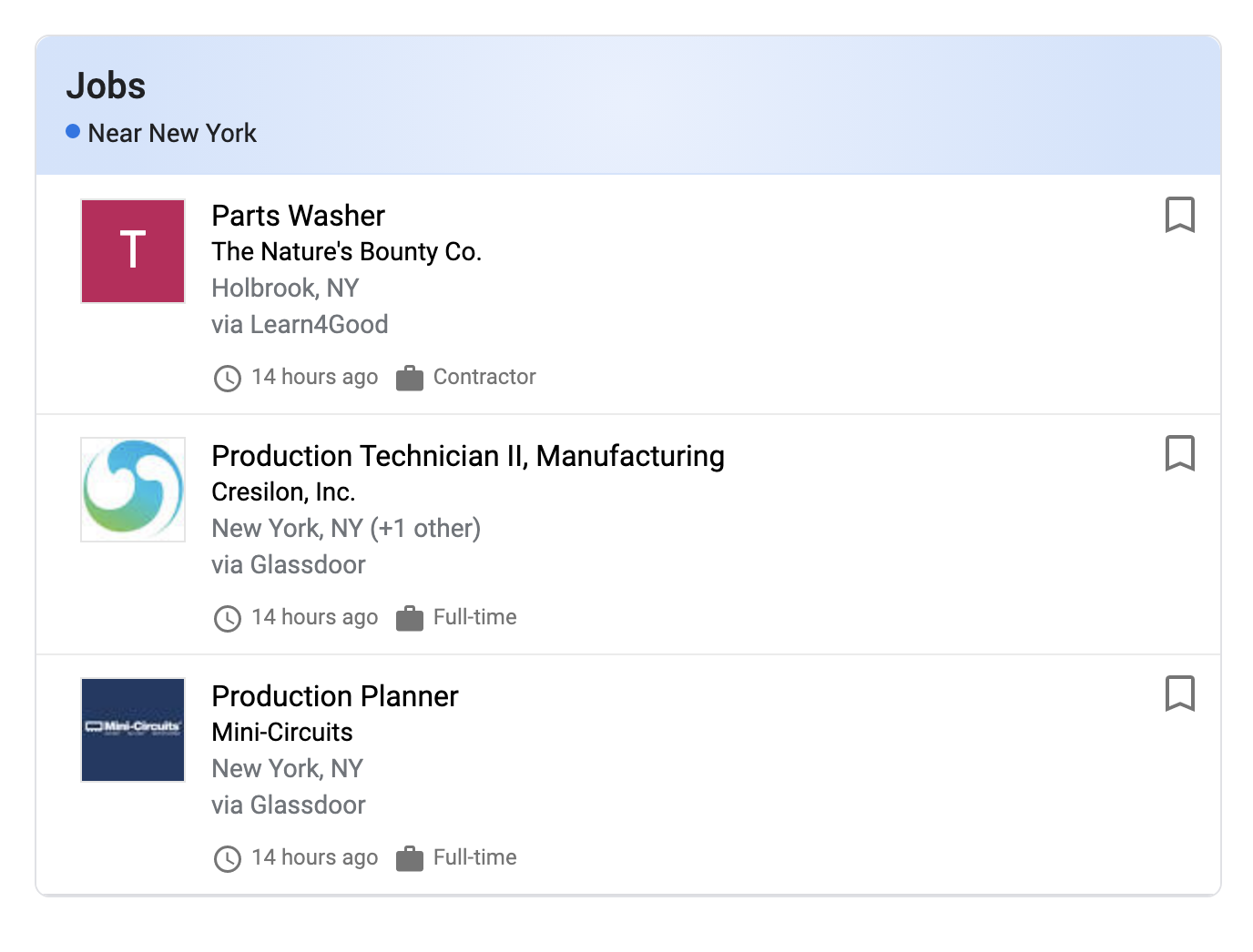Chapter 1
On-Page SEO 101
In this section, I’m going to cover the basics of on-page SEO, including:
- The purpose of SEO
- What on-page SEO is and how it differs from off-page SEO
- Why both on-page and off-page SEO are important
- Why keywords are the name of the game
- The core keywords for recruiters
Let’s get started.
The Purpose Of SEO
SEO (which is short for search engine optimization) is a strategy to get your recruiting website ranked more highly in Internet searches (mostly Google but increasingly AI search tools like ChatGPT Search and Perplexity).
To search for a recruiter, people use certain keywords or phrases. When you identify those keywords and use them strategically on your pages, the ranking of your site will improve.
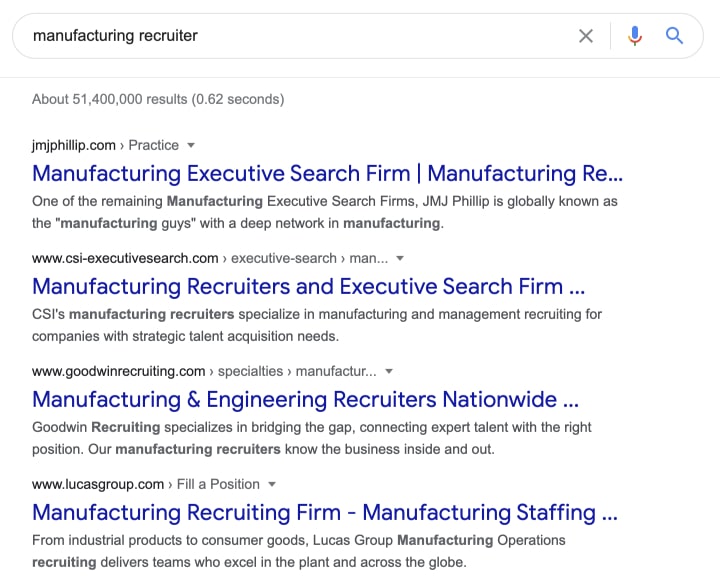
What Is On-Page SEO? And How Is It Different from Off-Page SEO?
There are two complementary SEO strategies: on-page and off-page. Using both strategies will get you the best results.
On-Page SEO
On-page SEO is the way to optimize your site’s rankings by using the right keywords on your pages.
While using keywords in your visible content improves your on-page SEO more than any other step, you can further increase the optimization by using keywords in your title tags, internal links, and URLs.
Off-Page SEO
Off-page SEO helps to improve your site’s rankings through backlinks.
Backlinks are links to your own site that are hosted on other sites. For example, someone might write a blog and use information from your site for reference. A backlink could be provided as a citation.
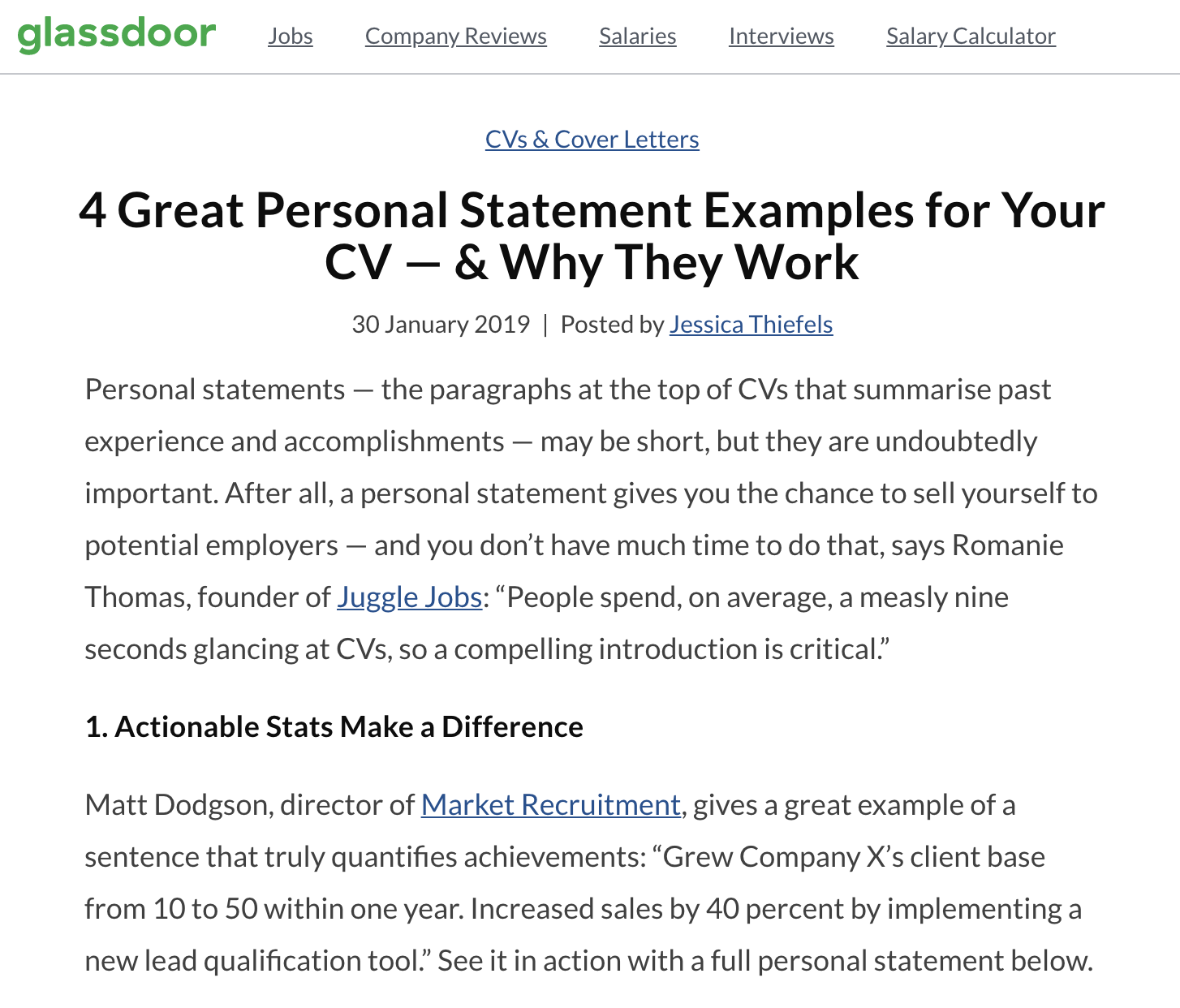
Backlinks are essentially a vote for your website that says, “This site has useful and credible information.”
Search engines find those votes valuable in determining SEO rankings.
On-Page And Off-Page SEO Are BOTH Important
To fully optimize your search engine rankings, it’s important to use both on-page and off-page SEO strategies.
Keywords Are The Name Of The Game
When someone is looking for a product or service online, they type a word or phrase into a search engine. That word or phrase is called a keyword or search term.
Keywords are the building blocks of an SEO strategy.
Core Keywords
Core keywords are those words that people will most likely search for.
For recruiting websites, core keywords include industries, practice areas and locations (more on those topics below) paired with variations of:
- recruiter
- recruiting
- recruitment
Here are some examples:
- A hiring manager looking for a new employee in the e-commerce industry might search for “e-commerce recruiter” or “e-commerce recruiting”
- An HR representative looking to find a recruiter for their search for a sales manager might search for “sales recruiter” or “sales recruitment”
- A CEO looking to find a recruiter for their CFO search in Chicago might search for “Chicago recruitment agency”

Additional Keywords
Of course, people don’t always search for a core keyword. They might use a synonym or a regional variation of a word. (For instance, the drink called “soda” by most Americans is called “pop” by Canadians.)
With your thinking cap on and a little research, it’s not difficult to come up with relevant additional keywords.
For recruitment websites, strong additional keywords are:
- executive search
- retained search
- headhunter
- search firm
- staffing (this would apply only to a staffing firm)
Now that you know what keywords are, the next step is learning how to use them strategically.
Would you rather someone else do all of this tedious SEO work for you? Book an SEO discovery call.

